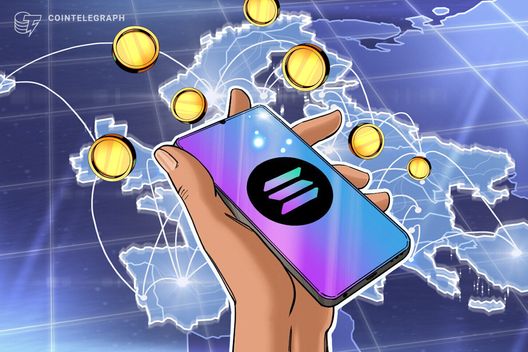In the ever-evolving landscape of cryptocurrency, a new term has emerged that is capturing the attention of industry enthusiasts and innovators alike: DePIN. This concept is being recognized as a potential solution to a pressing issue—internet outages that can disrupt our digital lives. As reliance on the internet continues to grow, so does the need for robust systems capable of maintaining connectivity.
Advocates argue that DePIN, which stands for decentralized physical infrastructure networks, could transform how we manage and mitigate downtime in internet services. By leveraging decentralized technology, proponents believe we can create more resilient infrastructures that provide stable internet connectivity, regardless of regional disruptions.
“The call for a wider adoption of DePIN is not just a fleeting trend,”
quotes one prominent figure in the crypto sector. This necessity is driven by an increasing number of outages worldwide, highlighting the vulnerabilities in traditional internet frameworks. As we face natural disasters, cyber-attacks, and other interruptions, the urgency to innovate becomes palpable.
The crypto community is no stranger to transformative ideas, and the conversation surrounding DePIN is gaining momentum. Drawing from both technological advancements and community collaboration, its potential could redefine how we think about internet connectivity in the years to come. With ongoing developments and discussions, this could be a pivotal moment in the intersection of cryptocurrency and our everyday digital experiences.

Importance of DePIN Adoption in Addressing Internet Outages
In the context of the increasing reliance on internet connectivity, the advocacy for broader adoption of Decentralized Physical Infrastructure Networks (DePIN) is pivotal for numerous reasons:
- Enhanced Resilience
- DePIN can provide a decentralized solution, reducing reliance on single points of failure.
- This enhances the overall resilience of internet infrastructure against outages.
- User-Centric Control
- Empowers users to participate in building and maintaining the network.
- Potentially leads to more reliable services tailored to local needs.
- Cost-Effectiveness
- Could lower costs associated with traditional internet service models.
- Possibility of utilizing local resources for infrastructure maintenance.
- Innovation Stimulus
- DePIN encourages technological innovations that could improve connectivity.
- Increased investment in infrastructure can create job opportunities.
- Community Empowerment
- Fosters local communities taking charge of their internet access.
- Strengthens social ties through collaborative efforts in building infrastructure.
Examining the Push for DePIN in the Crypto Space
The recent call for broader adoption of DePIN (Decentralized Physical Infrastructure Networks) in response to internet outages highlights a significant shift in how we perceive connectivity in our increasingly digital world. Advocates argue that DePIN offers a robust alternative to traditional internet structures, potentially enhancing resilience against disruptions. Unlike conventional methods, which often rely on centralized authority, DePIN leverages blockchain technology to create decentralized networks that could withstand localized outages.
Competitive Advantages: One major advantage of DePIN is its ability to offer decentralized solutions that can automatically reroute data traffic in the event of an outage. This flexibility can not only enhance user experience but also contribute to improved redundancy in communications. Furthermore, as more individuals and businesses seek reliable internet solutions, DePIN can cater to diverse demographics, including remote workers and underserved communities where traditional infrastructure may fall short.
Disadvantages: However, the implementation of DePIN isn’t without challenges. One significant hurdle is the existing technological gap; many potential users may lack access to the necessary hardware or expertise to participate in a decentralized network. Additionally, regulatory uncertainties surrounding cryptocurrencies and blockchain technologies could hinder the widespread acceptance of DePIN on a larger scale, which may confuse potential investors and users alike.
This growing discourse surrounding DePIN could benefit tech-savvy individuals and companies prepared to innovate within this space, ultimately creating a competitive edge. Conversely, traditional ISPs may find themselves at a disadvantage if DePIN gains traction, forcing them to reevaluate their service offerings in a market that increasingly prioritizes resilience and customer autonomy.

















